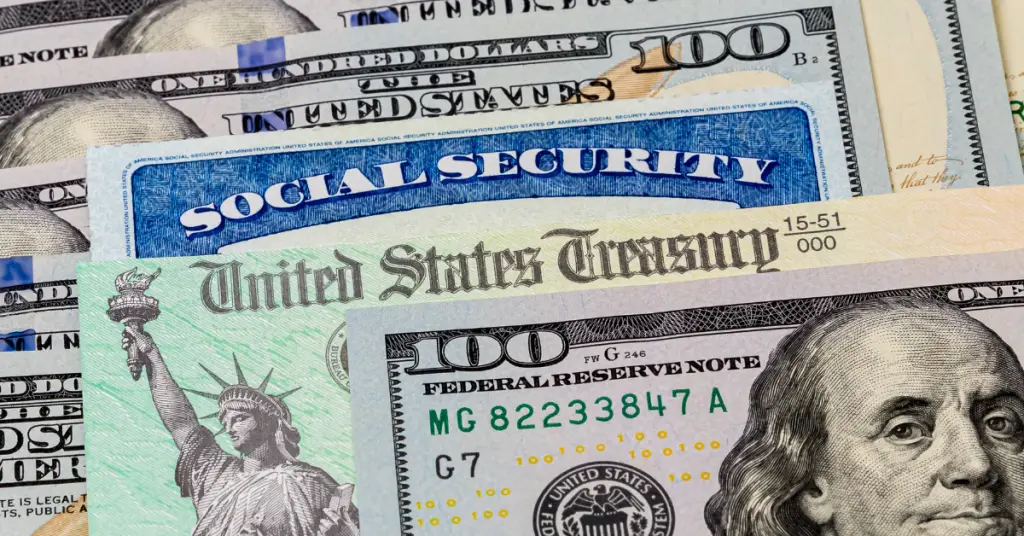On March 25, 2025, President Trump signed an executive order officially ending Social Security paper checks and tax refunds. Starting on September 30, 2025, paper-based payments, including checks and money orders, will be replaced with digital payments. According to the order, this change is intended to eliminate unnecessary costs, delays, and risks like fraud, lost payments, theft, and inefficiency.
Trump has stated that the shift to digital payments will help save money, reduce fraud, and improve overall efficiency. While these changes sound beneficial in theory, they raise some serious concerns about how they will affect the millions of Americans who currently rely on paper checks for their Social Security benefits and tax refunds.
For many people, this transition could cause a great deal of confusion and hardship. The most significant problem is that a large portion of Social Security recipients, especially seniors, aren’t comfortable with digital payments or may not have access to the technology needed to manage their benefits online. The switch to digital payments has already stirred up some debate, especially among older generations who may struggle with this new system.
One of the most pressing issues is the lack of internet access for a substantial number of seniors. According to a Pew Research study, 15% of seniors only own a smartphone and do not have broadband service at home.
This means that a significant number of elderly Americans may not have reliable access to the internet or the necessary technology to receive their payments through digital platforms. Financial expert Andrew Lokenauth, who works with many elderly clients, points out that nearly 25% of his older clients struggle with online banking or lack access to the internet altogether. This could make it difficult, if not impossible, for them to adapt to the new payment system.
In addition to the lack of internet access, there are concerns about potential elder abuse. Many older adults live in rural areas where bank branches have been closing. This has forced many of them to rely on family members to manage their finances, which, unfortunately, can sometimes lead to financial abuse.
Lokenauth, who has seen this happen firsthand, explains that this is an increasing problem, and the closure of paper-based payments could make the situation even worse. Family members, who may already be helping manage finances, could have increased access to their loved one’s money, opening the door to potential misuse or exploitation.

The move to digital payments could also result in unexpected fees that may not be immediately apparent. Many Social Security recipients will likely be issued prepaid debit cards by default. While these cards may seem convenient at first, they often come with hidden fees.
Michael Schmied, a senior financial analyst at Kredite Schweiz, explains that these prepaid cards can include transaction fees, monthly maintenance charges, and ATM withdrawal fees, which can quickly add up. Over time, these fees could reduce the benefits recipients rely on, leaving them with less money to cover their essential expenses.
Additionally, recipients who have their benefits directly deposited into a checking account may face overdraft fees or automatic deductions for bills they didn’t authorize. Banks often deduct charges or payments from an account before the account holder has a chance to use the funds, which can lead to insufficient funds and penalties. These fees are typically unnoticed by people who aren’t familiar with the intricacies of online banking or who may not be able to manage their accounts as closely as they would with paper checks.
The switch to digital payments could also prove problematic for those who lack the technological skills or devices necessary to navigate online banking or payment systems. Not all seniors are familiar with smartphones or computers, and many may find it difficult to keep up with the digital shift. While some may have family or friends who can assist them, this dependency on others could lead to further issues, especially if they are unable to easily manage their benefits themselves.
Despite the challenges, there are a few potential advantages to moving toward digital payments. For one, eliminating paper checks could reduce the risk of lost or stolen payments. Paper checks can easily be misplaced or intercepted, but digital payments offer a more secure way of transferring money directly to recipients. Additionally, digital payments could provide faster access to funds, as payments could be processed and deposited more quickly than waiting for a paper check to arrive in the mail.
Furthermore, digital payments could offer more flexibility, allowing recipients to manage their costs and benefits online, set up automatic bill payments, and track their spending with ease. This could help some recipients manage their money better and reduce the chances of falling victim to fraud or financial mismanagement.
However, these benefits may not be enough to outweigh the drawbacks for many individuals who are not ready for the digital shift. The bottom line is that the transition to digital payments is a significant change that will affect millions of people, especially older adults. For many of them, the shift will require adapting to new technology, managing online banking, and possibly dealing with unexpected fees. These obstacles could make the transition more difficult and cause unnecessary stress for those who rely on Social Security to cover their living expenses.
Ultimately, while the goal of reducing costs, fraud, and inefficiency is admirable, the implementation of this policy should take into account the needs and challenges of older Americans who are less familiar with digital banking. Policymakers must find ways to address these issues and ensure that all recipients have access to the resources and support they need to navigate the transition to digital payments successfully. Without these considerations, the move could end up exacerbating the financial difficulties faced by society’s most vulnerable members.
President Trump’s decision to end Social Security paper checks represents a significant change for millions of Americans. While the shift to digital payments promises a more efficient and secure system, it also raises important questions about how it will affect those who are not prepared for the transition. More needs to be done to ensure that the digital divide does not leave vulnerable seniors behind and that they continue to receive the support they need to manage their finances in a rapidly changing world.
Disclaimer: This article has been meticulously fact-checked by our team to ensure accuracy and uphold transparency. We strive to deliver trustworthy and dependable content to our readers.




